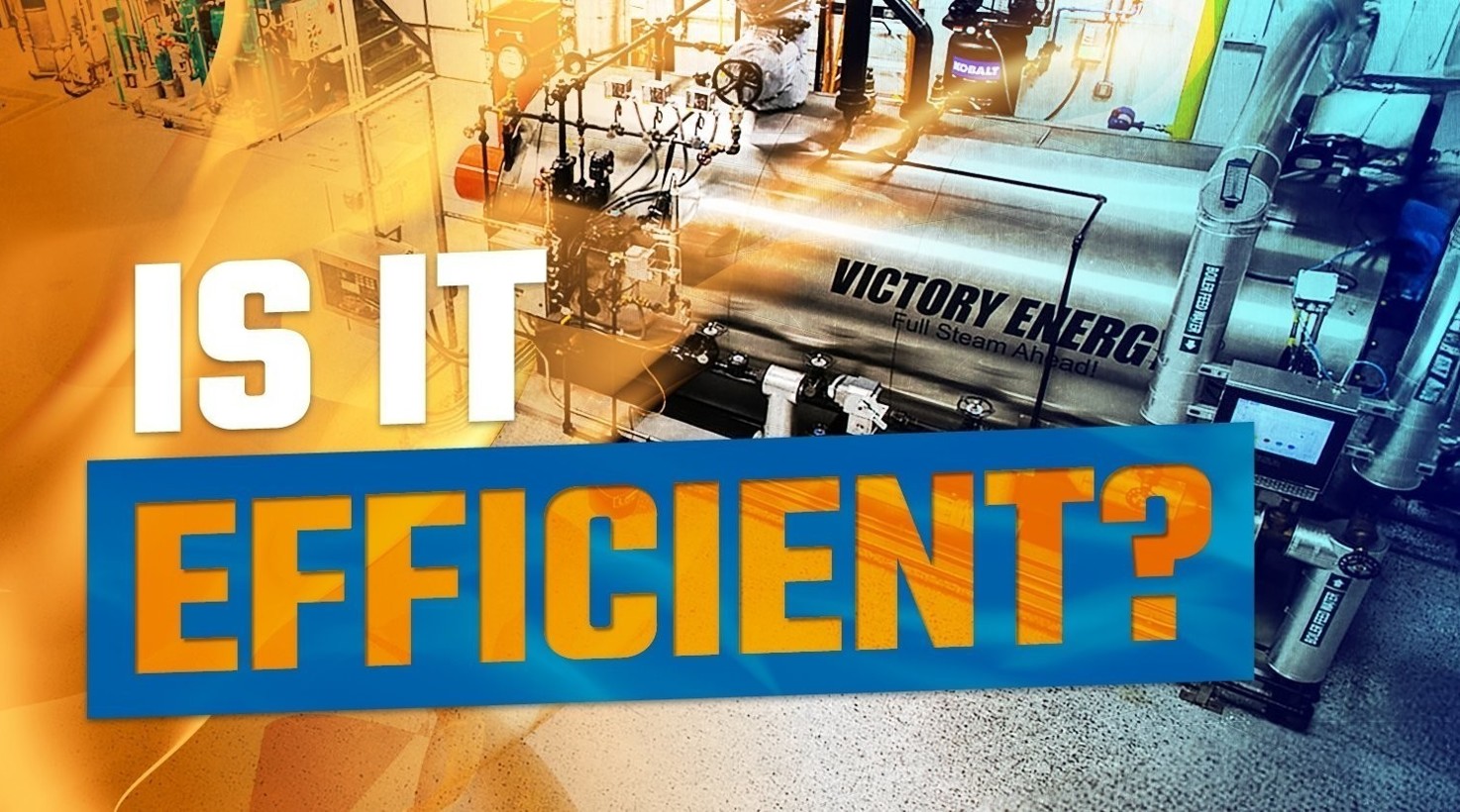Every hour your boiler runs, it’s consuming energy in the form of natural gas, propane, or fuel oil. The less oil or gas your boiler needs to create a pound of steam, the less you’re paying to get your work processes completed. In the end, it all comes down to efficiency.
COMING IN, GOING OUT
In the simplest terms, the efficiency of any boiler is a measure of how much energy you’re putting in versus how much steam you’re getting out. Another way to look at it is, how much usable heat are you getting every time you burn a given amount of fuel.
To measure the efficiency of a boiler, you’re going to have to measure the amount of energy flowing in versus the amount of energy coming out. Luckily, since every process inside your boiler involves some form of heat transfer, there’s some common ground when it comes to figuring it all out.
BTUs
There are several ways you can measure heat energy, and one of the most popular ways is in British Thermal Units (BTUs). A British Thermal Unit is defined as the heat energy required to raise the temperature of one pound of water by one degree Fahrenheit at sea level.
Something else that comes into play here is energy density, which is the potential amount of heat trapped inside your fuel source. Let’s use propane as an example. If you have 1 gallon of propane and you burn it (in a controlled environment, obviously) you’ll get a total of about 91,500 BTUs of heat energy when all is said and done.
Calculating your boiler’s efficiency, therefore, is a matter of figuring out how many BTUs are in the fuel you’re putting in, versus the number of BTUs that come out the other end and actually do work.
In a perfect world, every boiler would operate at 100% efficiency, meaning when you burn 1 cubic foot of natural gas (which has an energy density of 1,037 BTUs), you’d get 1,037 BTUs of usable heat energy to turn water into steam and steam into work. However, 100% efficiency isn’t yet possible with current technology. Though our industry has made vast improvements over the years, you can currently expect an efficiency of around 85% from a new, perfectly calibrated boiler running at full rate.
LOSING IT
While 100% efficiency may be possible someday, the truth is, a lot of heat energy gets lost throughout the steam-making process. If you’ve ever been inside a boiler room, or if you’re inside one now, you know it’s a warm environment. What you’re feeling is some of the lost heat that radiates through the walls of the pressure vessel, the walls of the furnace, and through all the pipes and valves found throughout your system. It’s a fact of life: metal radiates heat. But it’s also the only material that is both strong enough, malleable enough, and heat-cycle-resistant enough to make safe, reliable boilers. So for now, we’ll have to do with the loss. However, there are several things you can do to reclaim some of the heat you’re using, and one of the most important ones is to install an economizer.
An economizer scavenges heat from your exhaust stack, putting it back to work preheating your boiler’s feedwater or makeup water. By preheating them, your boiler’s fire side will ultimately have to expend less energy turning that preheated water into steam. Remember, a BTU is the measure of how much energy it takes to raise a pound of water by one degree. If your makeup water is coming in at 60 degrees and you need it to hit 212 degrees, that’s going to take 152 BTUs to get it there. If, however, your makeup water has passed through an economizer that has raised its temperature to 180 degrees, you’re only going to need 32 BTUs to get it there.
WRAP STAR
Another sure-fire way to increase your efficiency is by insulating your boiler. We just talked about how metal radiates heat, and a good insulation job will help slow that radiating to a crawl. If your pipes are wrapped up, you’ll lose less heat as your boiler runs. Bonus: If you wrap the external pipes on your boiler, you’ll also prevent it from getting damaged as the cold weather moves in. If you get a freeze in your utility line, you’re going to starve your boiler of the water it needs to run. When that happens, you’ll end up shutting the boiler down on low water and repeating this failure over and over, which can lead to vessel failure down the line.
CALCULATING EFFICIENCY
Now that we know the relationship between boilers and BTUs, it’s time to put them to work calculating our efficiency. If you know how much energy your boiler is producing, simply divide that by the amount of heat energy going into it in terms of the heat density and flow rate of your fuel. Whatever that number is, you always want to do everything you can to keep your efficiency as high as possible. When a boiler runs, it runs for a long time. Minute after minute, hour after hour, you’ve got fuel pouring into it, and steam or hot water coming out. Whatever you can do to hold on to every last BTU will come back to you in terms of lower yearly fuel costs.
If you’d like to get more efficiency out of your current boiler, WARE has ways to do that. We also have the highly skilled technicians to make it happen. If you’re in the market for a new or rental boiler, we have plenty of those, as well. We can also help you learn more about how your boiler works. Whatever you need, just contact us and let us know.
